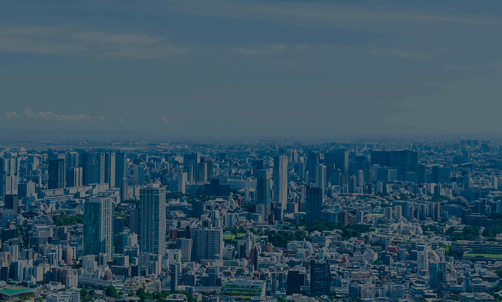- Home
- Sustainability Report
- Mitsubishi Materials Group's Initiatives on Material Issues
- Developing and promoting the use of renewable energy
Strengthening Measures to Address Global Environmental Issues
Developing and Promoting the Use of Renewable Energy

高耐熱_高絶縁性樹脂の均一電着コーティング技術

新規地熱プロジェクト

矢吹太陽光発電所

熱交換方式種類と各実績の一例
Producing Renewable Energy
We have been developing renewable energy sources to supply the electricity needed for our mines and smelters. To date, we have been promoting the creation of renewable energy sources, mainly geothermal and hydroelectric power generation, in order to provide a stable supply of energy with minimal environmental impact, utilizing the expertise we have accumulated.

- * Our biogas power generation business was transferred on September 30, 2024.
Geothermal Power Generation Business
Activities for the Stable Operation of Existing Power Plants
We generate stable and clean electric power through the power plants we maintain, including the Onuma Geothermal Plant and Sumikawa Geothermal Power Station (steam supply only, power generated by Tohoku Electric Power Co., Inc.), both in the Hachimantai area of Kazuno, Akita prefecture, the Wasabizawa Geothermal Power Plant (owned by Yuzawa Geothermal Power Corporation, established jointly with Electric Power Development Co., Ltd. and Mitsubishi Gas Chemical Company, Inc.) in the Takamatsu and Akinomiya areas of Yuzawa, Akita Prefecture as well as the Appi Geothermal Power Plant (owned by Appi Geothermal Power Corporation; established jointly with Mitsubishi Gas Chemical Company, Inc. and Electric Power Development Co., Ltd.), which began commercial operation on March 1, 2024 in Hachimantai, Iwate Prefecture. In the fiscal year ended March 2024, we generated a total of 622 GWh of power (including 328 GWh from plants in which we have equity stake, etc.). The operation of our geothermal plants and steam supply systems effectively reduced CO2 emissions by approx. 1.36 million tons (calculated based on emissions from Sumikawa Geothermal Power Station of Tohoku Electric Power Co., Inc. and our equity stake in Wasabizawa Geothermal Power Plant of Yuzawa Geothermal Power Corporation).
In geothermal power generation, it is important to understand the unseen underground conditions to ensure a continuous and stable supply of steam. At the Sumikawa geothermal power plant, we will continue to monitor the underground conditions through detailed verification of data since the start of operation and reanalysis of the geological structure in order to improve the amount of electricity generated and continue stable operations at the site.
Activities for New Geothermal Development
In August 2021, we launched a survey to quantify the geothermal resources in the Komonomori area (Kazuno), which is located northeast of the Onuma Geothermal Power Station, using subsidies from the Japan Oil, Gas and Metals National Corporation (JOGMEC). Further, we have begun a survey to quantify the geothermal resources in the upstream area of the Appi River (Hachimantai), which is east of the Appi Geothermal Power Plant, in June 2022 using subsidies from JOGMEC. Additionally in May 2022, we invested in Hakodate Esan Geothermal G.K., which is conducting geothermal surveys and development in the Esan area (Hakodate) and are involved in the construction of a geothermal power plant with RENOVA, Inc. and Daiwa Energy & Infrastructure Co. Ltd., which will begin after the resource surveys and environmental impact assessments have been completed.
We are also continuing to conduct joint surveys with other companies in the Azuma-Adatara area of Fukushima prefecture.
 Wasabizawa Geothermal Power Plant (Akita prefecture)
Wasabizawa Geothermal Power Plant (Akita prefecture)
Main business operator: Yuzawa Geothermal Corporation
Operation commenced in May 2019
Output: 46,199kW
 Appi Geothermal Power Plant (Iwate prefecture)
Appi Geothermal Power Plant (Iwate prefecture)
Main business operator: Appi Geothermal Energy Corporation
Operations scheduled to March 2024
Output: 14,900kW
- Started Commercial Operation of the Appi Geothermal Power Plant
- Joint venture project by three companies following the Wasabizawa Geothermal Power Plant - -
Appi Geothermal Energy Corporation, which is a joint venture company formed by Mitsubishi Materials Corporation, Mitsubishi Gas Chemical Company Inc., and Electric Power Development Co., Ltd., started commercial operation of the Appi Geothermal Power Plant today.
The Appi Geothermal Power Plant is located at an altitude of approximately 1,130 meters and operates at an output capacity of 14,900 kW utilizing promising geothermal resources in the Hachimantai region of Iwate Prefecture. This is the first time in 28 years that a geothermal power plant with an output of over 10,000 kW has operated in Iwate Prefecture. All the electricity generated will be supplied to society under the Feed-In Tariff (FIT) system for renewable energy.This project is supported by Japan Organization for Metals and Energy Security, applying a debt guarantee project for geothermal resource development funding.
We will contribute to the expansion of the use of renewable energy through the stable operation of the Appi Geothermal Power Plant. Appi Geothermal Power Plant
Appi Geothermal Power Plant Location
Location
- Participation in a New Geothermal Development Project in the Esan Area, Hakodate City, Hokkaido
-
In May 2022, we have invested in Hakodate Esan Geothermal LLC (Esan Geothermal) as a new business partner of RENOVA, Inc. (Chuo-ku, Tokyo; Founding CEO, Yosuke Kiminami) and Daiwa Energy & Infrastructure Co. Ltd. (Chiyoda-ku, Tokyo; President, Morimasa Matsuda). Since its establishment in 2016, Esan Geothermal has moved ahead with business development with the aim of developing a new geothermal power plant in the Esan area of Hakodate City, Hokkaido.
We are utilizing the abundant experience and high technological capabilities we have cultivated over many years through our development and management of coal and metal mines for hydroelectric and geothermal power generation. In relation to geothermal power generation, since Onuma Geothermal Power Plant (Akita Prefecture) started operation in 1974, we have played a central role in the construction and operation of Sumikawa Geothermal Power Plant (Akita Prefecture, operation started in 1995), Wasabizawa Geothermal Power Plant (Akita Prefecture, operation started in 2019), and Appi Geothermal Power Plant (Iwate Prefecture, operation scheduled to start in 2024).
We have been working on the "development and promotion of the use of renewable energies such as geothermal energy" and intend to engage in this project by making use of our experience and technological capabilities through investment to contribute to the success of the project. An excavation survey
An excavation survey
Hydroelectric Power Generation Businesses
We have a long history of generating hydroelectric power, dating back to 1898, when we built seven hydroelectric power plants in Akita prefecture, for the purpose of supplying enough power to run Osarizawa Mine (opened as a gold mine, later operated as a copper mine, closed in 1978) and homes in the local area. We were compensated for one of those power plants when a dam was built and the plant was submerged in 2000. The remaining six however are still operating today, selling all of the power that they generate to a power company. Since 2014, we have successfully completed upgrades at three hydroelectric power plants, in an effort to deal with aging facilities. We also completed updates at Oyu Hydroelectric Power Plant (Kazuno) in March 2018. In addition, in May 2019, we began to construct the New Komatagawa Hydroelectric Power Plant in the Komata River system in Kita-Akita City, Akita. It is the first new hydroelectric power plant since the No. 4 Komatagawa Hydroelectric Power Plant, which was completed in 1953. The new plant is scheduled to start operating in December 2022. We also began investigations in multiple places since the fiscal year ended March 2022, with the goal of constructing new small-scale hydropower plants with an output of around 1,000 kW each.
In the fiscal year ended March 2024, the combined total of power generated by all six hydroelectric power plants was 108 GWh. Our operation of hydroelectric power plants effectively reduced CO2 emissions by approx. 40,000 tons.
 Komatagawa New Power Plant (Akita prefecture)
Komatagawa New Power Plant (Akita prefecture)
Main business operator: Mitsubishi Materials Corporation
Operation commenced in December 2022
Output: 10,326kW
Solar Power Businesses
Since 2013 we have been working on a new solar power business, making effective use of idle Group land. By 2017 we had built power plants in five locations as part of a joint venture with Mitsubishi HC Capital Inc. We are currently operating plants in Makabe (Ibaraki prefecture), Fukui, Torigoe (Fukuoka prefecture), Irigama (Miyagi prefecture), and Yabuki (Fukushima prefecture). In the fiscal year ended March 2023, the combined total of power generated by all five solar power plants was 29 GWh (including 14 GWh from power plants in which we have equity stakes). The operation of these power plants (in which we have equity stakes) effectively reduced CO2 emissions by approx. 10,000 tons.
 Irigama Solar Power Station (Miyagi prefecture)
Irigama Solar Power Station (Miyagi prefecture)
Main business operator: LM Sun Power CO., Ltd.
Operation commenced in January 2015
Output: 6,930kW
Biogas Power Generation Business
We conduct power generation using biogas obtained from the processing of food waste at New Energy Fujimino Co., Ltd., a consolidated subsidiary established in 2018. The power generation has an output of 550 kW. In the fiscal year 2024, the electricity generated through biogas power generation amounted to 3 GWh (of which our share was 2 GWh).
- * Our biogas power generation business was transferred on September 30, 2024.

Renewable Energy's Effect on the Reduction of CO2 Emissions
Reduction in CO2 Emissions Using Renewable Energy (reflecting our equity in power plants)

- * Recalculated based on the CO2 emission factor for commercial electric power defined by METI
- * Our biogas power generation business was transferred on September 30, 2024.
Renewable Energy Power Generation Targets and Results

- * Steam supply to geothermal power plants (steam sales converted by electric energy volume)
Ground Source Heat Pump Systems (GSHP)
Helping to Build of a Decarbonized Society by Promoting Ground Source Heat Utilization, Which is Renewable Energy Heat.
In 2000, Mitsubishi Materials Techno Corporation entered the business of ground-source heat, which is heat from a renewable energy source, as a provider of total engineering solutions. The company has been providing services in the process from project proposal through investigation, design, construction, and maintenance.
The company has continued its R&D efforts and acquired patented technologies through projects commissioned by the government and others, aiming to become the No.1 company in geothermal technologies. As a result, the company has succeeded in building infrastructure using ground-source heat by developing commercial systems with various heat exchange methods, including not only the common borehole method but also its patented foundation pile method as well as horizontal and earth retaining wall methods. At present, Mitsubishi Materials Techno Corporation is promoting sales of these technologies as systems for using ground-source heat utilized through urban infrastructure, aiming to contribute to smart cities in the future.
Approx. 130 systems from the company have been installed. Since 2020, the large-scale utilization of ground-source heat has been increasing. For example, the company completed one of the largest projects in Japan, which combines the borehole method (100 m in depth x 120 boreholes) and the horizontal method (nine units x approx. 100 m long trenches), at a city hospital in Hachimantai. It also completed one of the largest projects in the Tokyo metropolitan area, which applied the foundation pile method (66 cast-in-place piles) at the Yokohama City Hall. In May 2022, Mitsubishi Materials Techno Corporation, the Yokohama City Government, Takenaka Corporation, and other companies received the 60th Gakkai-sho Gijutsu-sho (academic society award and technology award) in the building equipment category from the Society of Heating, Air-Conditioning and Sanitary Engineers of Japan for the implementation of the Yokohama City Hall environmental and facility plans.
The company will continue to help establish a decarbonized society by expanding the use of ground-source heat as renewable energy.
Overview of the System for Using Ground-Source Heat Utilized through Urban Infrastructure

Heat Exchange Systems and Examples of Projects Which Adopted Them

Carbon dioxide Capture, Utilization and Storage (CCUS)
For Carbon dioxide Capture, Utilization and Storage (CCUS)
We have launched a demonstration test recovering carbon dioxide emitted from the Group’s plant. (See the link below for details.)
Concerning carbon dioxide capture and storage, we invested in Japan CCS Co., Ltd., which was established in May 2008. Through Japan CCS, we are participating in the Large-scale CCS Demonstration Project in Tomakomai and Investigation of Potential Sites for CO2 Storage. Regarding carbon dioxide capture and utilization.
- * This data is only available in Japanese on the website.







